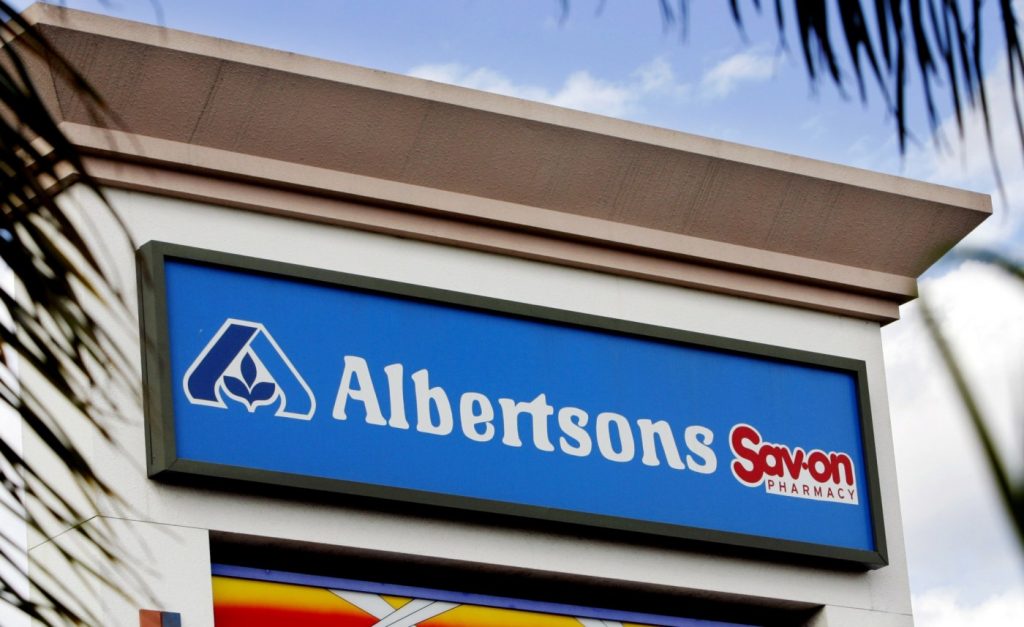Supermarket giant Albertsons and its Vons stores will pay nearly $4 million to settle complaints in California that they overcharged consumers through false advertising and unfair competition.
At the heart of the complaints were faulty scales and scanners used to determine food prices in checkout lines.
Prosecutors from the offices of district attorneys in Riverside, Los Angeles, San Diego, Ventura, Alameda, Marin and Sonoma counties brought the civil law enforcement complaint against Albertsons Cos. and Vons stores following a three-year investigation, which was settled this week.
Also see: Biggest question from Kroger-Albertsons trials: What’s a grocery store?
Overcharges at the supermarkets came to light when investigators with departments that handle weights and measures in the seven counties began working with law enforcement agencies. Consumers also raised concerns, according to authorities.
“When you get pricing wrong, it hurts a lot of people,” said Evan Goldsmith, deputy district attorney in Riverside County. “The way this worked was that if you grabbed a pound of bananas to get weighed, or any other produce sold, you’re going to get charged an inaccurate amount.”
Albertsons spokeswoman Courtney Carranza said Friday that the supermarket chain “takes this matter seriously and remains committed to ensuring that our customers can shop with confidence.”
She wrote in an email that the company has taken steps to ensure “our price accuracy guarantee is more visible to customers by posting signage at multiple locations at the front of our stores.”
Albertsons also has conducted additional training for store workers to reinforce the importance of price accuracy and customer transparency. “Additionally, we have enhanced price tracking systems to better ensure real-time accuracy at stores,” she said.
More on supermarkets: Who is C&S Wholesale, potential buyer of 63 Albertsons stores in California?
Goldsmith couldn’t explain how widespread the problem was in Riverside or California. He also couldn’t say specifically which stores engaged in overcharging consumers.
“It’s hard to describe the severity of the scales, but it wasn’t like charging you for 3 pounds when it was really 1 pound — but a lot of volume goes through the stores, so any variation can be significant,” he said.
The overcharging involved an issue of not maintaining the equipment properly. “They kind of go bad over time,” Goldsmith said.
The county weights and measures departments enforce laws and regulations related to high-tech devices to make sure they are used correctly and properly calibrated for goods and services purchased. Besides scales and scanners in grocery stores, these same departments also monitor gasoline dispensed at filling stations. Their stickers are prominently displayed on the gadgetry they regulate.
The complaint filed in Marin County Superior Court for all seven counties alleged that grocery stores owned by Albertsons also were overcharging customers with faulty scanners rather than using the lowest advertised price.
Albertsons also used inaccurate weights on the labels of its products, prosecutors said.
Some items sold by weight, such as produce, meats and baked goods, had less produce in the package than was displayed on the package label. The label was supposed to be printed out before the food was packaged, leaving out the packaging in the measurement, Goldsmith said.
Price accuracy program
The settlement requires the grocers to implement a “price accuracy program,” which allows a customer to be compensated up to $5 if they are overcharged, Riverside’s deputy DA explained. The program encourages consumers to report false advertising to the store as soon as it is discovered.
“Albertsons and Vons were very cooperative with us in our meetings,” he said of the settlement negotiations. “They made every effort to get this right. These issues happen everywhere, but this judgment only covers California.”
Boise-based Albertsons Cos., which operates Vons and Safeway stores in California, and Cincinnati-based Kroger Co., which owns Ralphs and the Food 4 Less chains, announced plans to merge in a $25 billion deal nearly two years ago.
Also see: Albertsons unveils list of 63 California stores to be sold ahead of trial
Last month, lawyers for the Federal Trade government argued in a federal court in Portland, Ore., that the merger should be blocked because the combination would “almost certainly” benefit shareholders and not everyday shoppers. A judge is still weighing whether to issue a preliminary injunction to block the merger.
Kroger and Albertsons argued their merger would preserve consumer choice by allowing them to better compete against growing rivals like Walmart, Costco and Amazon.
Related Articles
Four Monterey County hotels on Conde Nast Traveler Readers’ Choice list
Gov. Newsom signs lemon car reform law with a caveat to lawmakers
Whole Foods store in Oakland is bought for more than $44 million
Dogs are seemingly everywhere, including in stores, but not everyone is happy about it
Santana Row in San Jose lands cosmetics store and top-level restaurant


